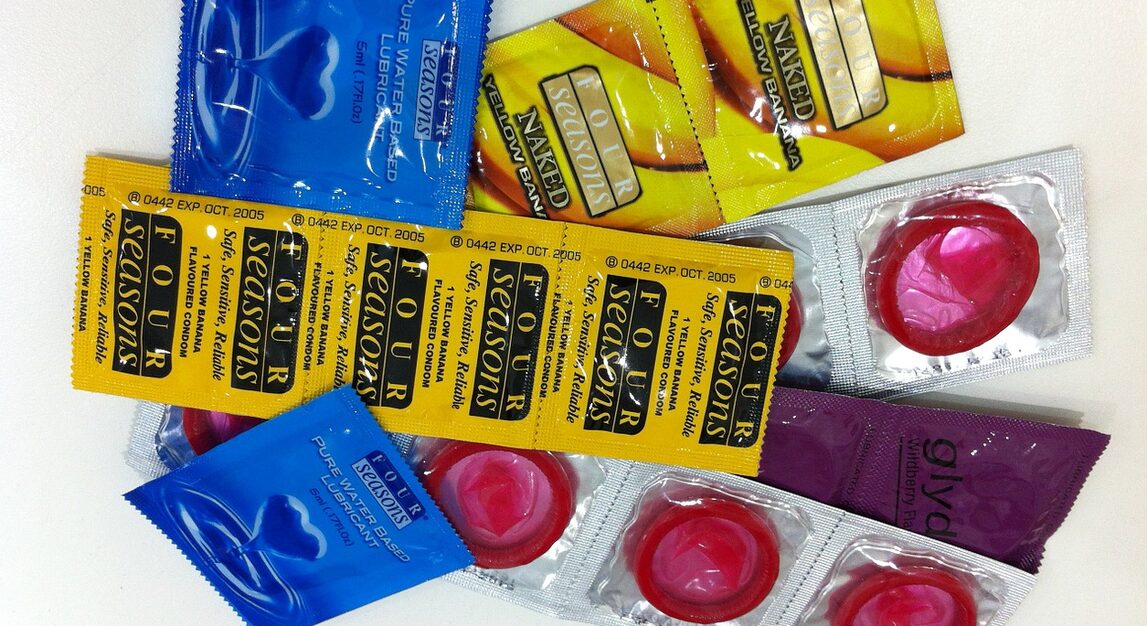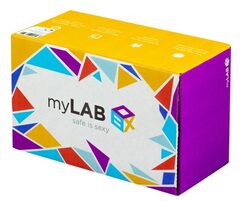Condoms

Caring for your Condom
By Jane Dee
When it comes to practicing safe sex, it’s not just enough to carry around a condom in your purse or wallet and be ready and willing to use it.
If it’s a condom that’s been idling in your wallet for quite some time -- perhaps with the lettering “break here for emergency” stamped across it -- then it might not offer you as much protection as you hoped for when you need it.
A condom’s expiry date is one way to check if it might not be as effective as it should be. Always check the dates on condoms and although you might have become attached to one that’s been with you for some time, if it expired a year ago, then it’s probably not to be trusted.
Extremes of temperature can break down the latex in condoms, so carrying one around in a wallet isn’t a good idea, as the heat from your body can weaken it and make it prone to breaking. The cold isn’t too good for condoms either, so the glove compartment in your car should be avoided, too.
And while you might see throwing a condom into your brief case as a bold show of sexual responsibility, it can get punctured by something in the contents of your case such as a pen or nail file.
Testing
Note: You can avoid Health Problems if your STI is Detected & Treated.
A good place to keep condoms is a hard plastic case such as the type you keep bar soap in when traveling, or a hard glasses case.
What you use with your condom can also affect its efficacy: oil-based lubricants such as hand lotion or baby oil will break down the latex, so use only water-based lubricants with latex condoms.
The failure rate for condoms in ideal use is only two per cent; however, in real use -- use by humans -- it’s 15 per cent. Most condom failure is the result of human failure.
As well as improper storage, not pinching the top of the condom to force out any air when putting it on can cause it to rupture on ejaculation; and not putting on a condom as soon as erection is achieved can also result in failure.
It’s important for any novice condom-users to read the instructions that accompany a packet of condoms. However, some people don’t bother with the instructions and then when a condom breaks lose all confidence and stop using them altogether. Practicing can help: try using a banana or your fingers to get familiar with handling condoms.
It’s important, after ejaculation, to hold onto the condom while withdrawing so that it doesn’t slip off and remain inside and leak.
Condoms should also be used during oral sex. Although there’s no risk of pregnancy obviously, STD's such as Chlamydia, gonorrhea or even HIV can be spread through oral sex, so always use a condom or dental dams.
Conclusion
If used correctly, condoms are an effective method of birth control. They provide the best protection against sexually transmitted diseases and come with no side effects (unless you, or your partner, are allergic to latex.
If so, try using condoms made from a non-latex material such as polyurethane). Treat your condoms well and they’ll go as far as saving your life. And that’s no exaggeration.
Note: To receive Proper Treatment for STIs, testing is required.
About STD Symptoms
Some people can be Symptomless (No Symptoms) of infection for Days, Months & even Years. Making it difficult to know if you have an STD without Getting Tested.
STDs do have Similar Symptoms so it might be difficult to tell which Individual STD you have Contracted. That is why a Panel Test for Multiple STDs is Recommended.
5 Complications of Untreated STIs
- Infertility
- Pregnancy Complications
- Increased Risk of Cancer
- Infection with HIV
- Death
Read More >>
Related Articles
Could Your Symptoms Signal an STI
Four Simple Ways to Prevent a Cold Sore
See All >>
 Disclaimer: Articles not intended to Diagnose, Treat, Cure or Prevent Diseases.
Disclaimer: Articles not intended to Diagnose, Treat, Cure or Prevent Diseases.
Infections | Education | Products | Testing


